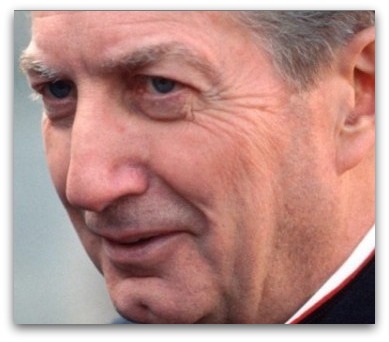
When Carlo Martini, the former archbishop of Milan, died on Friday, the Catholic Church lost a great and inspiring leader. A tall, aristocratic man, he spoke with gentle and measured authority. He never hid behind the regalia of a cardinal or succumbed to other pretensions of clericalism.
From the mid-1970s, I came to know and esteem him when he was successively rector of two flagship institutions in Rome, the Biblical Institute and the Gregorian University.
He reached out constantly to the young, to intellectuals, to all manner of alienated Catholics, to immigrants and refugees, and to Jews, Muslims, and followers of other religions. His deep faith in Jesus opened him to the whole world.
‘More people today have the gift of freedom than ever before in history,’ he told Jesuit students in Rome in 1993, ‘and my task is to evangelise this freedom.’
In conversations with an Austrian Jesuit, Martini was highly appreciative of the papacy of Paul VI, but explicit that the Pope’s encyclical Humanae Vitae reaffirming the ban on contraception had done ‘great damage’. The encyclical was one reason why young people would hardly ever turn to church representatives on questions to do with family planning and sexuality.
Martini cultivated connections with the Hebrew University of Jerusalem, which eventually conferred on him an honorary doctorate. Archbishop George Carey invited him to preach in Canterbury Cathedral. Work together towards producing The Greek New Testament, the most scientific edition ever produced of the New Testament in its original Greek, endeared Martini for life to Gordon Fee, a Pentecostal who became one the world’s leading interpreters of St Paul’s letters.
The Italian press cherished him, not least the Milan daily, Corriere della Sera. That paper carried a remarkable exchange of letters between Martini and Umberto Eco on the ecological, political, social, and religious challenges facing the church and the whole world. (In 2000 this exchange was published as Belief or Unbelief.) They began with the future of our race and our planet. Eco listed some ecological and other threats, and even entertained the thought of humanity’s ‘necessary suicide’. Without minimizing the terrifying portents listed by Eco, Martini insisted that no human or satanic power can destroy the hope of believers.
A deeply biblical person, he seemed a latterday Abraham, Moses or Paul. He made some of those figures the focus of spiritual exercises that he preached around the world. Many of these retreats were published: for instance, four volumes on the spiritual exercises in the light of Matthew, Mark, Luke and John. The volume on Mark served me well in 1980, when I visited Japan and puzzled over the material to use when leading a retreat in Kyoto.
Martini set his whole life under the word of God. He opened business meetings by slowly reading some scripture and inviting the other participants to spend a few moments mulling over the passage they had just heard. Each month in the Milan cathedral, he met for reflection on the scriptures with massed congregations, largely of young people. ‘Let the text ask you questions,’ he would tell them. He made hearing the scriptures in the context of worship, prayer and meditative silence a path to modern spirituality.
When John Paul I tragically died after barely a month as pope, Martini preached a remarkable homily, taking as his text what the Fourth Gospel has Jesus say about John the Baptist: ‘He was a burning and shining lamp, and you were willing to rejoice for a time in his light’ (John 5:35). Martini challenged his audience: ‘Is that all you are willing to do—merely rejoice for a time in the shining lamp that “the smiling Pope” was?’
During the Lent of 1997, Martini was among the cardinals invited to preach at Westminster Cathedral, London, for the centenary of its foundation. In its spiritual and biblical brilliance, his sermon stood out. Those who heard him preach on that occasion knew that the Catholic Church had lost a pope who would have ranked right at the top of papal preachers—with Leo the Great and Gregory the Great.
Martini lived and breathed the teaching and spirit of the Second Vatican Council. Along with other professors at the Biblical Institute, before, during and after the council, he helped to inspire and then implement the council’s work.
When Cardinal Martini died last week, the editor of the Corriere della Sera said that the cardinal would be missed as a theologian, ‘but especially as a teacher and spiritual guide for all of us, also for those who do not have the gift of faith’.
 Gerald O'Collins SJ teaches at the Jesuit Theological College in Melbourne, after teaching for many years at the Gregorian University in Rome.
Gerald O'Collins SJ teaches at the Jesuit Theological College in Melbourne, after teaching for many years at the Gregorian University in Rome.